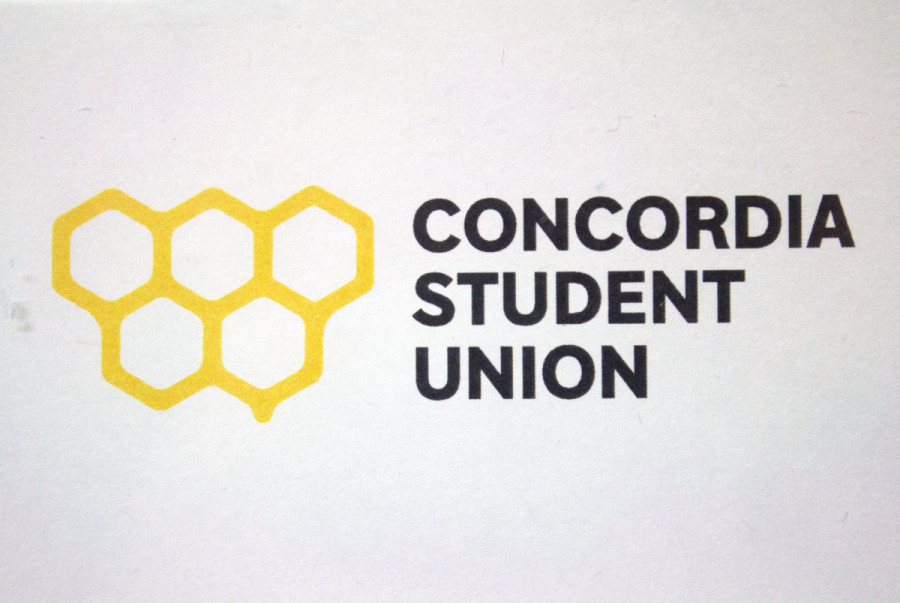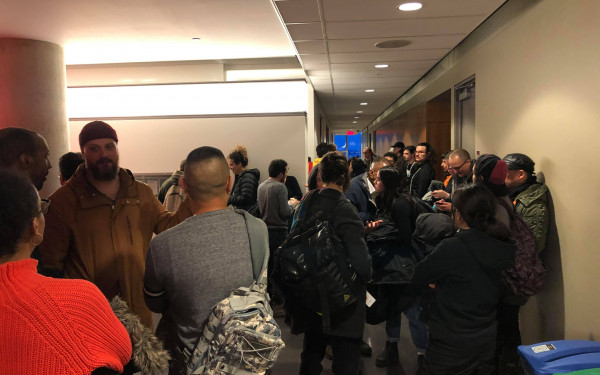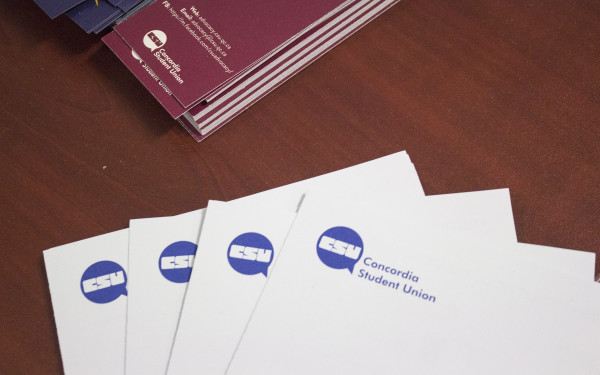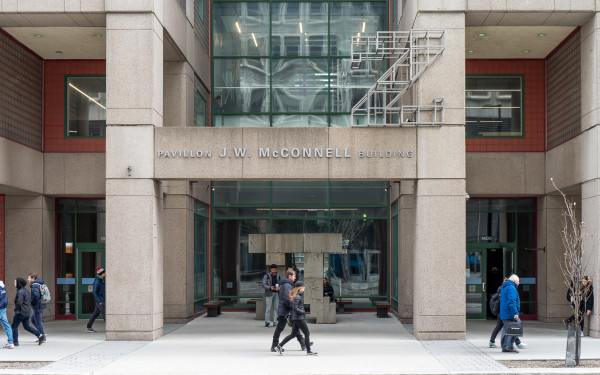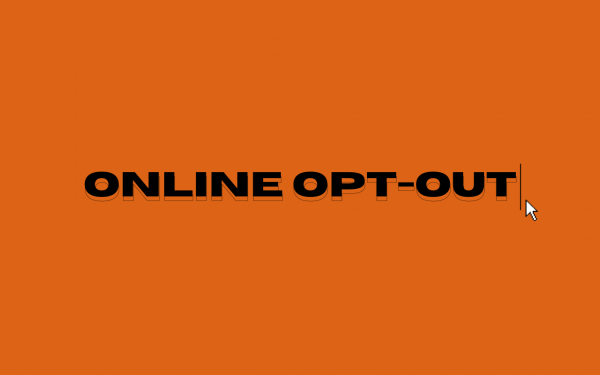Q&A With General Coordinator-Elect Isaiah Joyner
How COVID-19 Put a Wrench in Wheels of ‘We Got You’
Following April’s Concordia Student Union election, We Got You is gearing up to prepare for their coming mandate.
General Coordinator-elect Isaiah Joyner’s approach differs from his current and outgoing slate Cut the Crap in many areas—online opt-out included.
Joyner sat down with The Link to share his hopes for next year and what to expect from the new CSU executive team.
Answers have been edited for clarity and length.
The Link: What can you say are the differences between We Got You and Cut the Crap?
Isaiah Joyner: I think the name speaks for itself because Cut the Crap is a very provocative type of name, in the sense that we were trying to satisfy the needs of the people who were not represented in the union properly in terms of the activities and felt neglected.
Coming from a JMSB or engineering background, it’s like whenever you would come to ask the union for support, your cries would fall on deaf ears. We were really big business and engineer-centric.
I still want to be able to include the people who may feel like the union’s not there for them. The union does do a lot of good work for students and people in the community, so we were really trying to make sure that everybody knew that we’re here to serve and work and help you as much as possible.
The Link: What do you and your slate hope to accomplish this year?
Joyner: We want to continue a project that was started with the Cut the Crap platform, the Student Building. Depending on our priorities and what our mandate looks like, that was going to be one of our main projects, but I might have to shift my focus depending on how things look.
Something my team is very passionate about is we want to run a mental health campaign—a three-pillared campaign, including mental, physical, and sexual health. Now more than ever, even before we were all in isolation, mental health is something that’s slept on. We need to invest, because a lot of students are suffering from different forms of mental illness, or their mental well-being is constantly being put to the test. We want to step up our resources around mental health. We want to see if we can get a CSU service centred around mental health.
More than anything, we want to make the union a pleasant experience for those who interact with it. We want to create an environment where people can find support for a large variety of issues, no matter what faculty they come from, who they are, or how they identify.
The Link: What do you think about the school’s response to the outbreak?
Joyner: It’s a mixed bag. There’s some battles that are fought and won. Students have the pass/fail option, the school has the emergency bursary for students in need, but you also have the online proctoring, where it took an act of God or a technical malfunction for them to pull it back. They could do better, but hopefully they’ll be more susceptible to the solutions.
Ideally, Concordia would try its best to accomodate all their students as best they can. It should be a situation where we’re trying to get back to normal. We should not be trying to punish people for things that are out of their control.
The Link: What’s your stance on implementing the online opt-out?
Joyner: If students want to opt out, they deserve that right to opt out. But just like how this pandemic is nobody’s fault, I don’t want a system that’s going to punish anybody. I want to take the time to make sure it’s fleshed out and a more educationally based program.
If you’re opting out, it’s not because you don’t know what the group is. I want to make sure I have enough time to make a system that educates people on the fee levy they’re potentially opting out of. It will be an ongoing project because it is what the students want, but I don’t see the rush to implement it this year, or that it needs to be implemented in the Fall. What’s important is that it’s done correctly. It’s meant to be an accessible resource for people who need or want their money back.
The Link: This year there were a lot of tensions on council. What is your plan to unite everyone and have that be a less toxic atmosphere, like you said?
Joyner: Considering my team this year was running unopposed, it almost felt nervously calm. Last year we had three slates running and a lot of people. Within the Spotted: Concordia community and the uninformed community, people were throwing things out, calling people Nazis, and it was just such a negative environment. It felt like a very fierce competition type of thing where it was a very aggressive environment. Especially as someone who didn’t know the union before this, it was kind of like, ‘Whoa, like this is, this is a lot.’
This year—election-wise—it was more tame because the council seats ironically were the ones that were contested a lot in different faculties. Even then, it didn’t go as far as last year. It wasn’t as cutthroat. The CSU council is commonly known for a lot of heated debates and arguments.
An approach that I wanted to take this year in terms of making the CSU a more welcoming or enjoyable place for people is just bringing back that genuine sense of communication. It’s like, it seems so simple, but I find that people don’t take the time to really understand the people around them that they’re working with.
Realistically, people see the CSU sometimes as this kind of battleground where it’s this ‘us versus them,’ this fight, when it shouldn’t really be like that.
The Link: It still feels like—in the eyes of the student body—the CSU has this reputation of being quite toxic, especially with everything that happened last year. What do you guys plan to do in terms of changing that perception?
Joyner: With all the uncertainty of, ‘Are we even going to be able to physically go to school before September?’ Any strategy or game plan or thing that I would want to do now has to be modified.
Especially with exams and all that’s going on, and it’s like my team, and I haven’t really had the time to sit down and assess the situation. Training starts in May, so we’ll be able to get together and assess where we’re going. Right now, we’re all working remotely, and we’ll have to do meetings like this virtually.
We have such a diverse campus, whether it be fee-levy groups or clubs, whether it be student associations—somebody’s doing something. There’s just a lot of good being done around us, so if we can work on supporting the initiatives and the people around us with what they’re already doing, we’ll get more value out of the stuff that’s going on around Concordia.
The Link: Many councillors run on the fact that there’s a significant portion of the student body that doesn’t know what the CSU does. How are you guys going to ensure that the student body is better informed?
Joyner: Again, if this were pre-COVID-19, it would be a little bit more clear, because I think that collaboration is key.
We need to get more students involved in the CSU. I have a vision of working with every single faculty association as best I can to make our presence as known as possible and felt within the community. A lot of people know their faculty associations, whether it be through frosh or the activities that are organized by their faculty associations, but the union doesn’t always do those types of activities.
The Link: How will the CSU advance efforts to make Concordia a better environment for Indigenous students?
Joyner: Having worked with the finance coordinator this year on the BIPOC committee, I think we can do Indigenous projects better than we already do. Right now, we have funding bodies available, but we don’t have it in the budget for us to create new projects.
Creating scholarships to make the financial barrier a little less for Indigenous students and trying to find where that money was going to come from was a struggle. It gave us the idea to create a general line in the budget, rather than trying to move around money to fit the budget made at the beginning of the year. The best practice is to give space for stuff like this to be created.
We’ll put some resources there and use our existing relationships with Indigenous student groups on campus to see what major issues they’re facing to create a better and safer environment for these groups to prosper.

